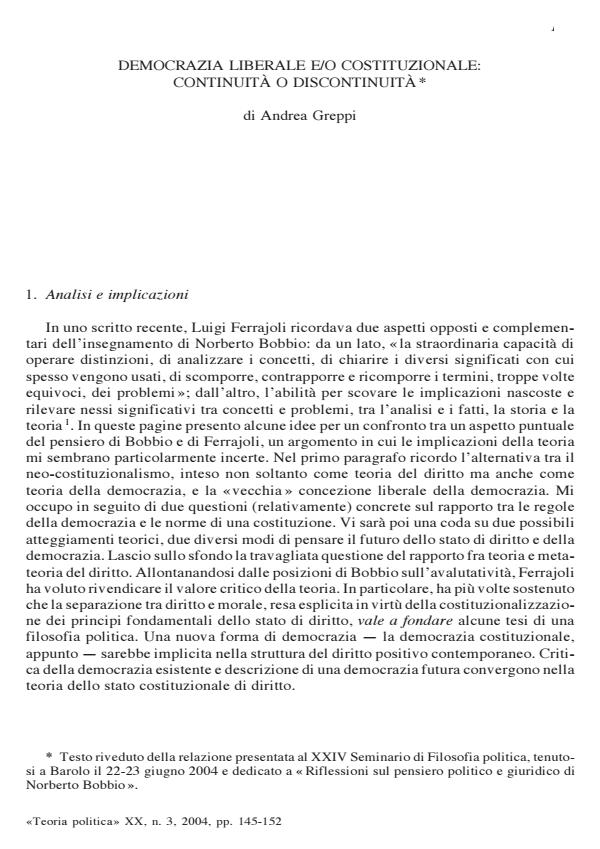Democrazia liberale e/o costituzionale: continuità o discontinuità
Journal title TEORIA POLITICA
Author/s Andrea Greppi
Publishing Year 2004 Issue 2004/3
Language Italian Pages 8 P. File size 444 KB
DOI
DOI is like a bar code for intellectual property: to have more infomation
click here
Below, you can see the article first page
If you want to buy this article in PDF format, you can do it, following the instructions to buy download credits

FrancoAngeli is member of Publishers International Linking Association, Inc (PILA), a not-for-profit association which run the CrossRef service enabling links to and from online scholarly content.
The hypothesis of a transition from the paradigm of the rule of law to the one of constitutional rule of law has been thought of as the premise of another paradigmatic transformation of contemporary democracy. The neo.constitutional movement announces the transition from the old liberal conception to constitutional democracy. Ferrajoli has put forward a substantial definition of democracy as part of a wider law theory. Bobbio,instead, preferred to cling to a minimal, formal and procedural definition of democracy which leaves no room for a re-elaboration such as the one offered by neo-constitutionalists. In this essay the two solutions to the problem of the relationship between the rule of law and democracy are compared. Falsehood Deadly Embrace.
Andrea Greppi, Democrazia liberale e/o costituzionale: continuità o discontinuità in "TEORIA POLITICA" 3/2004, pp , DOI: